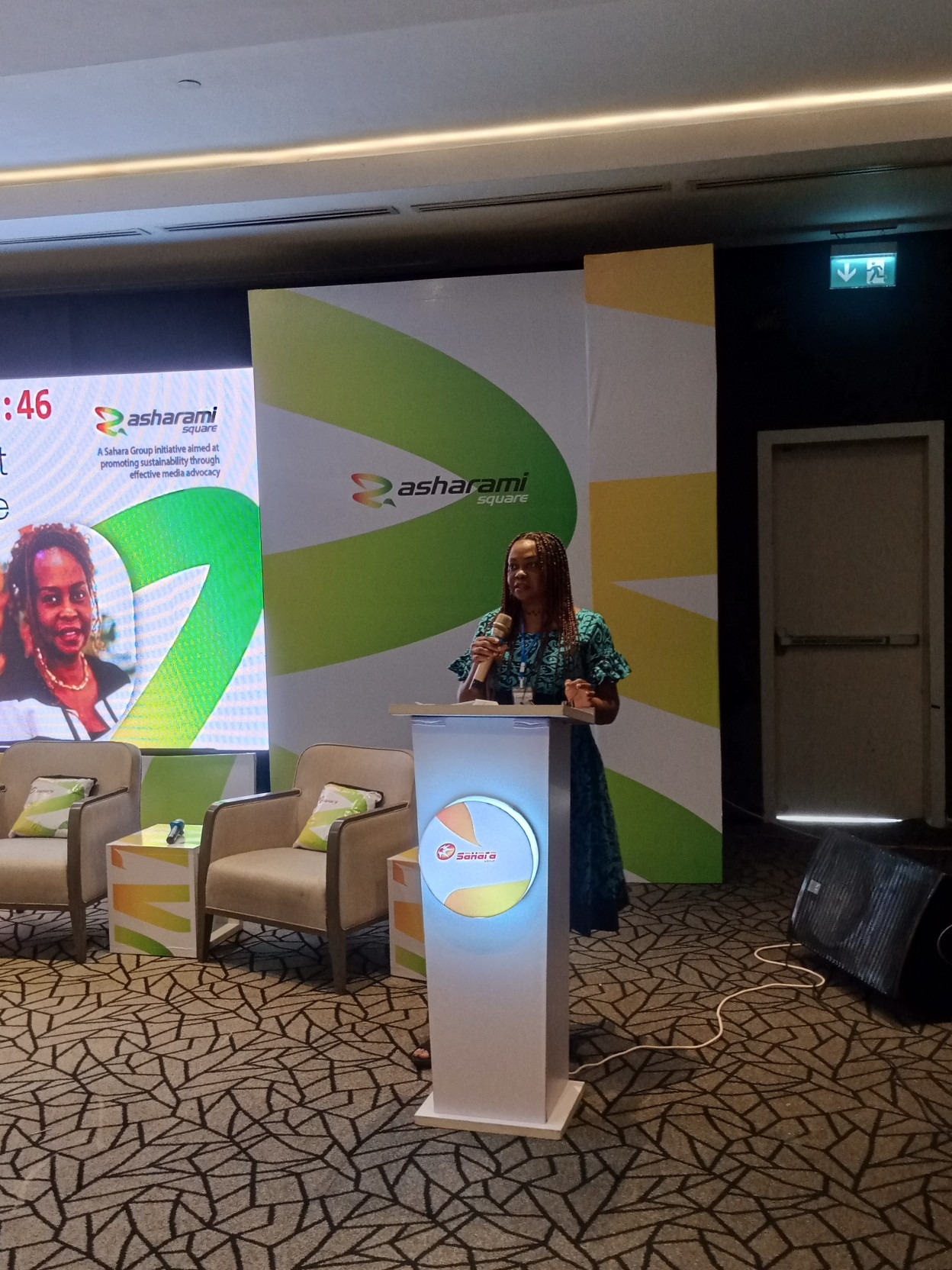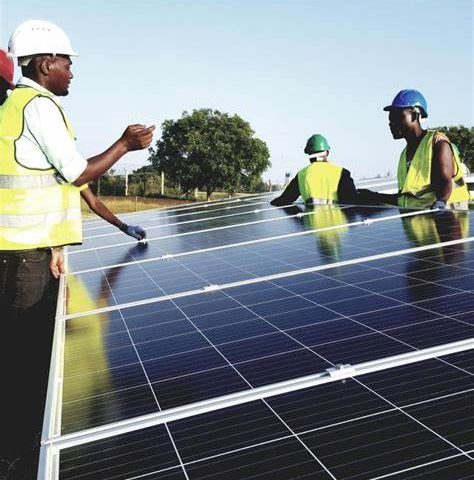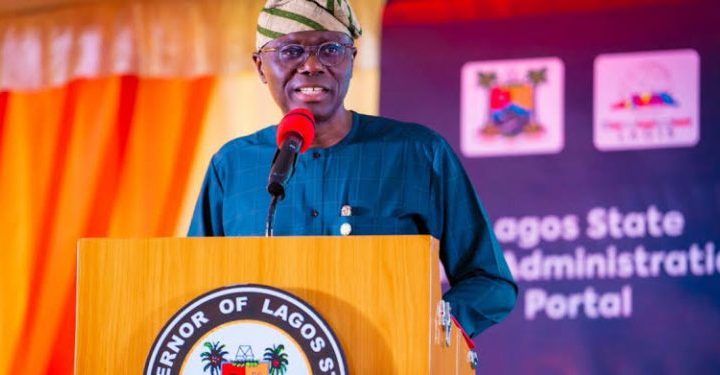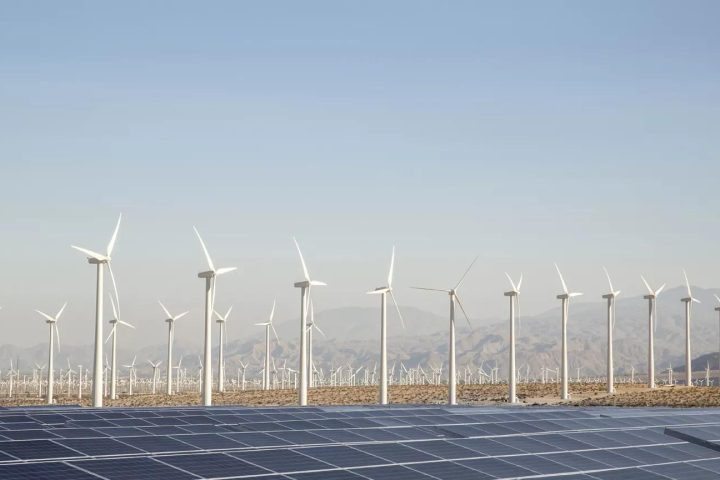As the world shifts focus towards creating sustainable environment in response to the threat of climate change, Ford Foundation’s regional director in West Africa, Dr ChiChi Aniagolu-Okoye, has highlighted ways Africa can position itself to benefit from the green economy.
A green economy is an economic system that promotes exploration and use of natural resources, and investment activities that reduce risks to the environment and encourage low carbon emission.
Join our WhatsApp ChannelDr Aniagolu-Okoye, who was keynote speaker at the Asharami Square event on promoting sustainability, held in Lagos on Monday, noted that African countries are endowed with great natural resources that make it viable for them to tackle climate crises affecting the continent.
Looking at the global cumulative Carbon dioxide (CO₂) emission which is at the centre of climate crisis, Aniagolu-Okoye stated that Africa with 17 per cent of the global population, accounts for only 4 per cent. This, she said, is insignificant, but the continent suffers the impact.
She however posited that being the “smallest emitter” of CO₂, and coupled with its natural resources, Africa stands at a vantage position to contribute significantly in global climate stability effort.
She said: “Africa holds up to 17% of the global population yet accounts for a negligible 4% of cumulative global historical Carbon dioxide (CO₂) emissions, the least of any region. This makes the continent not only the smallest emitter but a net-positive continent, whose net positivity contributes significantly to stabilizing the global climate.
READ ALSO: Sahara Group Backs Waste To Wealth In Sustainability Effort
“Africa also has mineral and natural resources, largest sources of renewable energy in the world, from solar, hydro, wind and geothermal. Africa is also blessed with a young working population and the natural carbon sinks, rain forests, swarm and mangroves forests. For example, the African rainforests are famed for being the world’s best carbon sponges. The Congo Basin rainforest offsets more than the whole African continent’s annual emissions and larger than the Amazon Forest.
“Nigeria’s Niger Delta is one of the largest but complex and dynamic wetlands in the world and is Africa’s largest Delta. These ecosystems are not only globally important for biodiversity but a carbon sink- if well cleaned up from the oil and gas pollution, the Delta will make a significant contribution to Africa’s carbon reduction targets.”
The social change advocate further stated that Africa has traditional experiences in their pattern of living in harmony with nature for millions of years that could be shared with the rest of the world on climate adaptation. She called on historians, social scientists, and civil society actors to document these traditional wisdoms on climate adaptation as they were unfortunately not done earlier. “It is, therefore, important for governments, the private sector, civil society and media to encourage the ethical and equitable engagement with indigenous peoples and local communities to document, share and learn application of traditional knowledge, wisdom, and values in the design and implementing of climate adaptation policies and plans,” Aniagolu-Okoye advised.
READ ALSO: Need To Re-Shape Education In Pursuit Of Sustainability Goals
Speaking on the topic, ‘Carbon Footprints and the African Narratives’ she said the narrative must not only focus on the challenges but the opportunities the moment presents and how the continent can tackle it to live sustainably.
“We must highlight Africa’s contribution to the climate stability of the world. We must change the story of Africa being only a victim of climate change requiring help to an Africa that is also a climate action and mitigation champion,” she stated.
Speaking further on how Africa can participate in the green economy, Aniagolu-Okoye said since the economy of many countries in the continent depend on fossil fuel and natural resources, their governments must carefully design transition plans “that ensure minimum damage to the economy.”
While noting that there is urgency to support African nations in adapting their economies to a climate-affected future, she called for collaboration and inclusion in all actions in the continent and maintained that it is necessary to reframe “the narrative around climate action as an opportunity for a green economic development pathway into the future that maintains its status as a low-carbon emitter.”
According to her, such plans or policies must be inclusive, and aimed at addressing existing inequalities and led by local expertise. “This will provide opportunity to develop investment plans and invest in critical areas like sustainable food and land use systems. It is only in developing the capacities and retooling the youth for green economic opportunities and adaptation and mitigation measures based on African realities and lived experience, do we stand a hope of averting climate catastrophe,” she stated.
READ ALSO: Experts Highlight Ways Africa Can Participate In Energy Transition For Sustainability
She equally recommended that narratives around climate change in Africa must be aimed at highlighting issues of justice for those affected by ecological disasters and exclusion from benefits of natural resources extractions.
“It must be aimed at strengthening the voice, visibility and collective action of those most affected by climate change and exclusion. Our communication must raise public awareness about both the challenges and opportunities including indigenous knowledge that climate change offers. Our writings must demand and promote policies and rights of communities most affected, especially women and youth,” she added.
She charged the media to be at the forefront of driving conversations about climate stability in the continent.
The development expert also emphasised the need for strategic partnership by different stakeholders across sectors as “no one individual, organisation or donor can address the range of actions required to address Climate Change.”
She also called on political, traditional and faith-based leaders at all levels to be committed to climate change initiatives and polices.
Victor Ezeja is a passionate journalist with seven years of experience writing on economy, politics and energy. He holds a Master's degree in Mass Communication.



















Follow Us